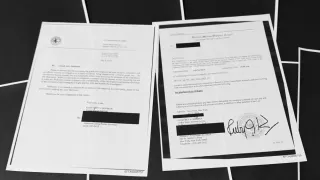May 30, 2019
Ex-Kentucky Officer Gets Prison for Trying to Entice Minor
READ TIME: 1 MIN.
A former Louisville, Kentucky, police officer has been sentenced to nearly six years in prison for trying to entice a minor and later sexually abusing him.
The Courier Journal reports 33-year-old Brandon Wood also was sentenced Tuesday to register as a sex offender and undergo related treatment.
Wood met the minor while advising the department's now defunct program for youths interested in law enforcement. Another ex-Louisville officer and program adviser, Kenneth Betts, awaits sentencing on enticement and child porn charges.
Both men pleaded guilty in deals that were later rejected by U.S. District Judge David Hale, who said the promised prison sentences were too lenient.
They're named in a federal lawsuit by seven Youth Explorer scouts alleging abuse. It's set for trial in June 2021.






